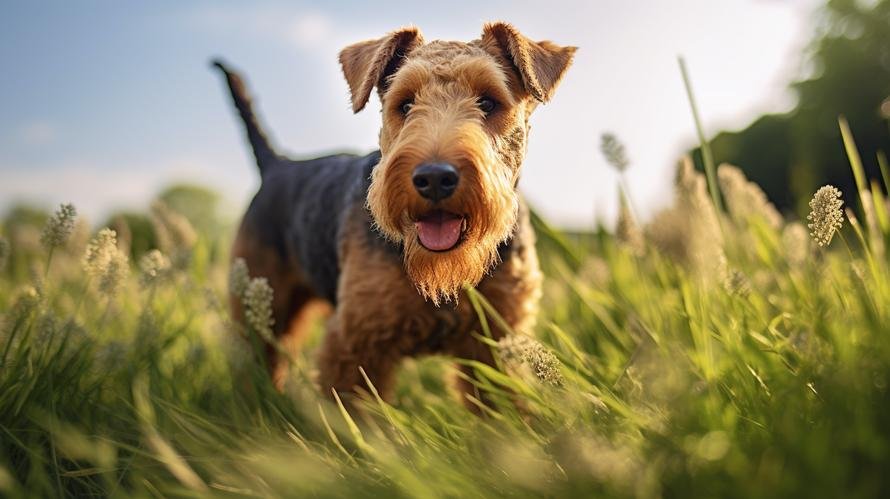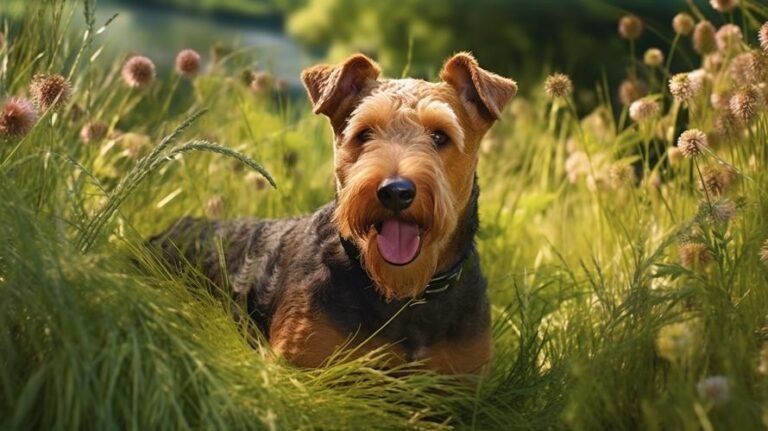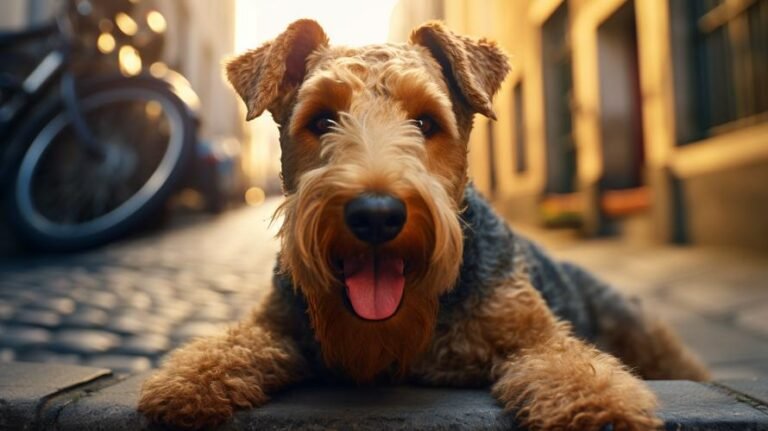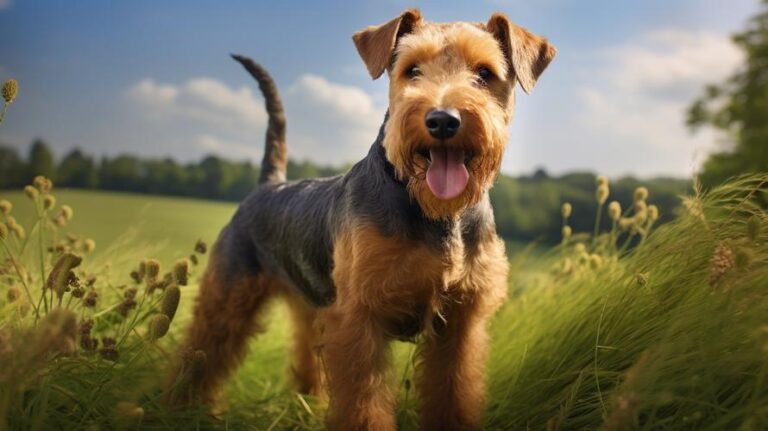The Welsh Terrier, with its distinctive double coat, perky tail and square build, is an eye-catching breed. One might assume that this little charmer, with the cheeky sparkle in its eyes, has a temper to match its fiery coat.
But is it valid to label a Welsh Terrier as feisty or even aggressive?
This type of stereotyping often stems from incomplete understanding or misinformation. Let’s pull back the curtains and really get to know this inimitable breed.
Have you ever spotted a Welsh Terrier grin? Believe it or not, these dogs are known for their human-like, grin-a-mile-wide expressions. You knew dogs could smile, but you probably didn’t know it went this far. Their grin, however, is more than just a random expression – it’s a window into their character. Welsh Terriers are energetic, playful and intelligent creatures, packed with winning confidence and an endearing zest for life.
Speaking of zest for life, Welsh Terriers are the epitome of the phrase “small in size, big in spirit”. Their origins trace back to wily working terriers of Wales in the late 18th century. Traditionally, they were bred to hunt, chase and outsmart foxes and badgers. This explains their tenacity, bravery and above-average intelligence – traits that might mistakenly be assumed as aggression.
Understanding a Welsh Terrier’s inherent traits is vital. Their DNA sequence, remember, decides their instinctive behaviors. Welsh Terriers, like other terriers, may exhibit certain behaviors like chasing, digging and vigorous play, which could be misinterpreted as shows of aggression.
The key here is to distinguish between their hard-wired canine instinct and a truly aggressive behavior. A dog that barks out of excitement isn’t the same as a dog snarling with intent to bite. Since Welsh Terriers might have a high prey drive, a passing squirrel or rustling leaves can send them into a fur-ore of barking and chasing! Are they being aggressive? No. They’re just being themselves – lively, driven, and a tiny bit zealous creatures.
Here’s the thing: no breed, including the Welsh Terrier, is innately aggressive. However, any breed, if not raised and socialized properly, can develop behavioral issues, which might manifest as aggression. Undeniably, there are Welsh Terriers that can be challenging to train and socialize, but their personality varies from dog to dog, as with every other breed. Managing this breed’s vitality and liveliness requires consistent training, lots of patience, and an active lifestyle – all ingredients that make for a well-rounded Welsh Terrier companion.
Socialization is your ace card in raising a well-behaved Welsh Terrier. Like putting together a puzzle, every interaction your little Terrier has with a fellow doggy, a new human friend, or a different environment contributes to their growth and shapes their behavior. If they’re exposed to various surroundings and situations at an early age, they’ll grow up to be adaptable, well-adjusted dogs that are far from being aggressive.
Exercise is another major factor in managing a Welsh Terrier’s exuberance. A yard to play in, long walks, a chase-the-ball game or an agility course are effective recipes to channel their energy constructively. Without enough physical activity, their unused energy may transpire as destructive or unwanted behavior – again, these should never be misconstrued as aggression.
Lastly, peaceful living with a Welsh Terrier is not a jigsaw puzzle. Treat them with kindness and they’ll return it tenfold. Shower them with love and you’ll be rewarded with unshakeable loyalty. They’re vibrant, spirited, and make excellent companions who add a dash of humor and a lot of energy to your life!
Remember, a Welsh Terrier’s “aggressive” behavior may simply be an expression of their pent-up energy, their response to unfamiliar situations, or their instincts at play. Constructive training, an active lifestyle, and a healthy dose of love and patience can help shape eager, spirited Welsh Terriers into obedient, well-adjusted, and non-aggressive companions. After all, every dog, whatever the breed, deserves to be genuinely understood and loved for who they are!



